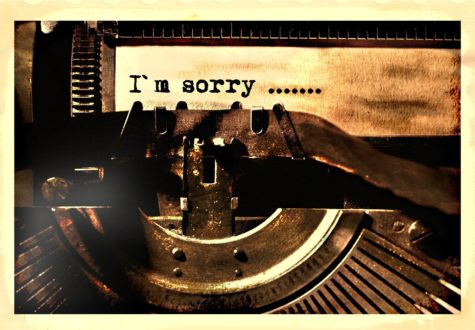HANOVER, N. H. — Saying sorry can actually make an instance of social rejection feel worse, a new study finds.
Researchers at Dartmouth College conducted a series of experiments with more than a thousand participants to see how different individuals would react to being snubbed.

In the study’s first experiment, the researchers actually sought out about 600 individuals waiting in line at various local outdoor festivals, events, and restaurants and had them take part in a survey. More than 480 students from an introductory psychology course were also recruited as well.
The participants were asked to respond to various situations in which they would reject a social invitation from a person named “Taylor.” In one survey, participants had to explain how they’d turn down Taylor following a request to go out on a date. Another scenario saw Taylor as a supposed co-worker who heard about lunch plans the participants had with four other colleague, and asked to join.
In the other scenarios, Taylor was depicted as roommate who wanted to continue living with the participant as a lease was set to expire; a person who asked to hang out with the participant after recently meeting at a party; or a match from an online dating service who emailed the participant about a date.
No matter the situation, participants had to indicate a “good way” to reject Taylor. The researchers then had a group of “raters” read the rejections and evaluate how hurtful each response was.
They found that 39 percent of participants were found to have issued an apology in their rejections, which the raters actually found to increase hurt feelings. Apologies were found to make the rater feel worse particularly in the lunch and roommate scenarios, only marginally in the party depiction, and not at all in the date rejection.
A second study had 135 participants, recruited from an introductory psychology course at the university, meet face-to-face following a rejection to see how they would try to get even after being spurned.
“We know that people often don’t want to admit that they have hurt feelings, so in some of the studies, we looked at how much people wanted to seek revenge,” explains lead researcher Dr. Gili Freedman in a news release. “Specifically, we looked at the degree to which rejectees imposed an unpleasant taste test of hot sauce on their rejectors.”
The participants were set up to work with a planted “confederate” who would politely reject the participants’ request to work together during an assigned list of group tasks. In some cases, the confederate would be sure to apologize when telling the participant they didn’t want to work with him or her.
One of the group tasks included a taste test that saw participants pour hot sauce on food samples. The confederates in some instances would indicate that they hated spicy food, before leaving the room. The researchers found that who were rejected from prior group tasks were more likely to spite their enemies with a liberal dose of hot sauce when an apology was included in the rejection, even if they knew that their peer hated the condiment.
“As predicted, rejections that contained the words ‘I’m sorry’ led to worse outcomes than rejections without apologies; participants allocated more hot sauce,” the authors wrote. “The participants believed the confederate did not like spicy food and, therefore, the greater allocation likely reflected a hostile act designed to hurt the confederate.”
A final experiment had participants watch a video of a real-life rejection, as researchers hoped to examine whether feelings on if one should accept an apology could be influenced.
Participants who had witnessed an offended party receive an apology were more likely to feel as if that party should express forgiveness, regardless of how they actually felt.
Ultimately, an apology may do nothing more than simply soothe our own feelings.
“It is possible that rejectors may feel better about themselves if they apologize,” Dr. Freedman concludes. “We intend to examine when rejectors are motivated to feel better about themselves and when they would rather put the rejectee’s needs ahead of their own.”
The study’s findings were published last month in the journal Frontiers in Psychology.
